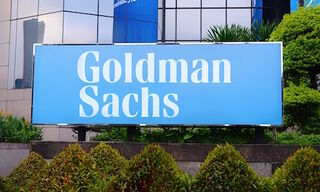Credit Suisse CoCo Bonds Have Phones Ringing at Finma
Investors in Credit Suisse's AT1 bonds are suffering a total loss while shareholders are receiving 3 billion francs is causing a stir around the world. Why did Switzerland choose this path?
On the second day after the historic takeover of Credit Suisse by UBS, the bailout merger is causing heated tempers and debate. As is almost always the case with such giant transactions, the devil is in the details.
As part of the forced marriage, in which UBS acquired Credit Suisse for 3 billion Swiss francs ($3.3 billion) in shares, the target's Additional Tier 1 (AT1) bonds worth 16 billion francs were written down to zero by order of the Swiss Financial Market Supervisory Authority (Finma). The merged entity will benefit from this action, as risk-weighted assets will be reduced and core capital strengthened.
A Special Swiss Approach
Bond investors are usually favored over shareholders when it comes to being made whole, on what is left over. With the UBS and Credit Suisse transaction, Switzerland is deviating from this general rule, causing dismay among bondholders.
To be sure, Credit Suisse's so-called CoCo bonds (contingent convertible bonds) contained an explicit passage that allowed regulators to write off the bonds without first asking shareholders to pay up.
Even if investors were made aware of the risks of CoCo bonds risk at the time of subscription, the Swiss approach is unusual. At most other banks in Europe and the UK, such bonds are better protected than in the case of Credit Suisse.
Creating Precedent?
The question now is why Swiss authorities chose this option in brokering the fire sale to UBS and whether other regulators might take a similar approach in future bank failures.
A trio of European regulators - the European Banking Authority, the ECB supervisory authority, and the Single Resolution Board - rushed to issue a joint statement Monday. They assured investors in the event of a bank failure in the European Union, shareholders would suffer first as a way of calming investors' nerves after Switzerland's AT1 decision.
Inquiries at Finma
At Finma, the phones are ringing off the hook and the electronic mailboxes are full. The fact that AT1 investors are suffering a total loss while shareholders are receiving 3 billion francs is causing a global stir.
According to Zurich banking sources, Finma is likely to take its time with its response. Banking observers expect the supervisory authorities will first consult with the Federal Council and the Swiss National Bank before communicating publicly.
Because the Swiss authorities' approach is controversial, it will probably proceed with caution. The case is now keeping the legal profession busy and likely the courts in the future.
International law firm Quinn Emanuel Urquhart & Sullivan already assembled a team of lawyers from Switzerland, the US, and the UK to hold talks with several Credit Suisse bondholders about possible legal action following the full write-off of their AT1 bonds.
Analysts Also Surprised
On UBS's analyst call following the Credit Suisse takeover, the CoCo bonds were the subject of discussion and astonishment. Jeffries analyst Flora Bocahut asked in surprise why such an option was chosen and whether it presented litigation risk for UBS. UBS CEO Ralph Hamers replied the decision was made by Finma and would not result in any liability for UBS.
Andrew Lim of Société Générale also found Finma's approach of favoring shareholders over AT1 creditors strange. However, Hamers did not provide a deeper insight into the negotiations between the Swiss authorities and UBS at the conference.
GAM Possibly Affected
The fact that bondholders have not been better protected is contributing to uncertainty in the financial markets, according to Swiss banking sources. Finma's decision could make it more difficult for other lenders to raise capital via new AT1 bonds.
At the same time, there is speculation about who has suffered losses and to what extent. According to Reuters, funds managed by Lazard Asset Management, Pimco, and GAM Investments were among the portfolios most heavily invested in Credit Suisse's AT1 bonds at the end of February, making them potentially vulnerable to losses from the bond write-down.
The companies mentioned declined to comment.




























